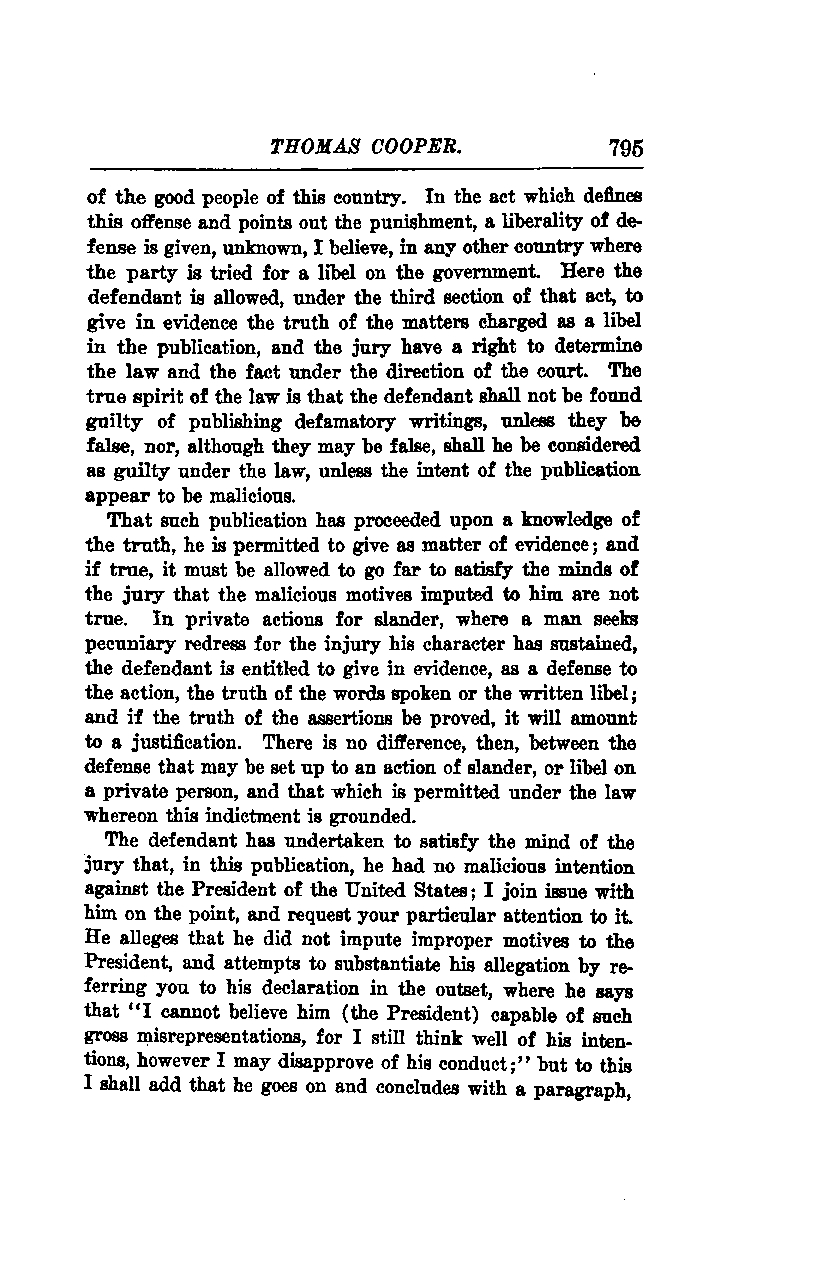
Here is the translated text as follows:
In the act that defines this offense and outlines the punishment, a level of defense is provided that is, to my knowledge, unknown in any other country where a party is tried for a libel against the government. Here, the defendant is allowed, under the third section of that act, to present evidence of the truth of the matters charged as a libel in the publication. The jury has the right to determine both the law and the facts under the direction of the court. The true spirit of the law is that the defendant shall not be found guilty of publishing defamatory writings unless they are false. Furthermore, even if they are false, the defendant shall not be considered guilty under the law unless the intent of the publication is proven to be malicious.
The defendant is permitted to present evidence that the publication was based on a knowledge of the truth. If the publication is true, it must be allowed to significantly influence the jury's perception, suggesting that the malicious motives attributed to him are not accurate. In private actions for slander, where an individual seeks financial compensation for damage to their character, the defendant is entitled to present evidence as a defense, demonstrating the truth of the spoken words or written libel. If the truth of these assertions is proven, it serves as a justification. There is no difference, then, between the defense that may be set up in an action of slander or libel against a private person and the defense permitted under the law on which this indictment is based.
The defendant has undertaken to convince the jury that, in this publication, he harbored no malicious intent against the President of the United States. I join issue with him on this point and request your particular attention to it. He alleges that he did not attribute improper motives to the President and attempts to substantiate his claim by referring to his initial declaration, where he states, "I cannot believe him (the President) capable of such gross misrepresentations, for I still think well of his intentions, however I may disapprove of his conduct." However, I must add that he continues and concludes with a paragraph...
---
This version maintains the original meaning while enhancing readability and clarity.